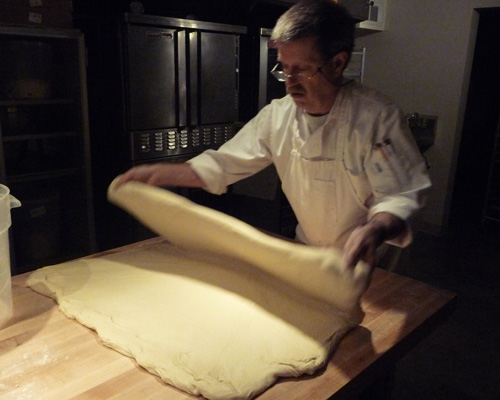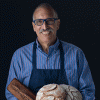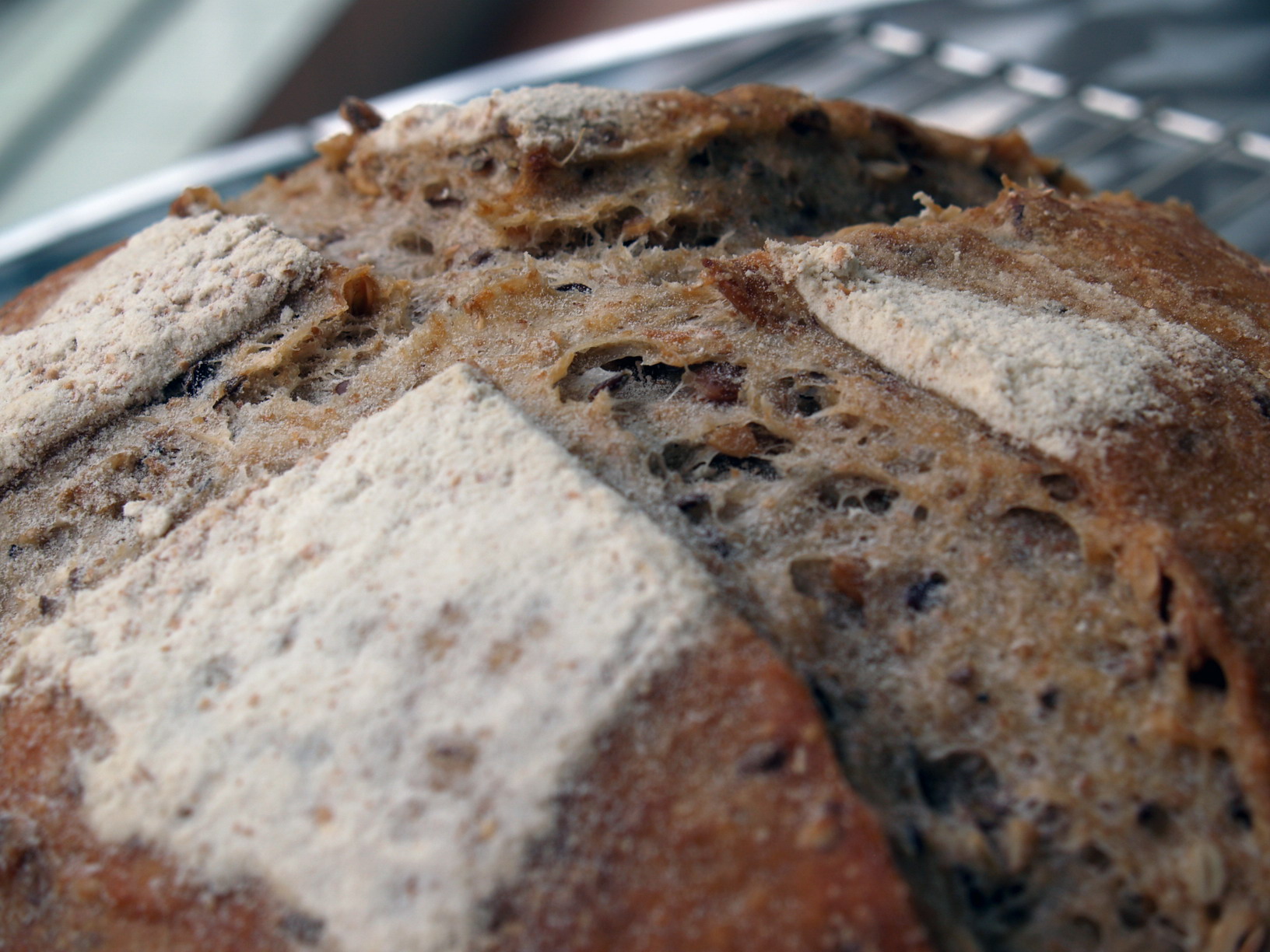it seems to me that one of the biggest hurdles beginning bakers face is the idea that because something shows up in a book, that's necessarily the way things have to be.
take sourdough culture, as in this thread. Peter Reinhart says, "..." and therefore that's how it has to be. Nothing against Peter Reinhart: he's an extraordinarily great baker and and extraordinarily talented teacher. the problem is simply that a lot of beginners, in their eagerness to "get it right," don't trust themselves.
fact is, we're dealing with a complex set of interrelated physical and biological processes here, and to insist that all sorts of unfamiliar (to those starting out) living organisms *must* conform with one person's observation or experience is, to me, a reversal of reality. we should be paying more attention to what actually goes on and then adjust our expectations.
so consider a starter. so much depends on the original source of the yeast (plum/grape skins? rye? capture from the air? yogurt?). yeast and lacto-/acetobacteria are everywhere and are location specific. then again, what about the flour? rye? wheat? organic? treated? high or low gluten? or the hydration ... acetobacter likes it dry; lactobacter likes it wet. ambient temperature will affect the rate of yeast and bacterial action. cold slows yeast and lactobacteria, but acetobacteria thrive in cooler temps.
reducing all this stuff, not to mention all the other random factors that may come into play, to a timetable is laudable and useful -- in fact, i've done it myself in a baking book i'm writing -- but one person's experience of the interactions among a complex set of factors and events shouldn't ever constitute a sole and immutable truth.
baking, like so many other things in life, is experience-based, and no book -- no matter how experienced the author nor how careful the research -- should ever become a substitute for observable reality.
when i use organic dark rye flour to start a culture, i usually get activity within 24 hours. like the spark from a flint, that germ of a culture needs to be nourished and nurtured over a couple of weeks of regular feedings before you can consider it a finished sourdough starter ... so what matter if the yeasts go active in 12 hours or 72? all that matters is that we capture the spark and nurture it into a flame.
baking formulas are great because they organize information and they convey an experience or set of experiences that generally work within a relatively broad set of limits. but within those limits are infinite variations of time, temperature and the interplay of ingredients ... and controlling those is the art of baking, as opposed to the science.












